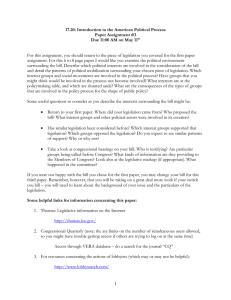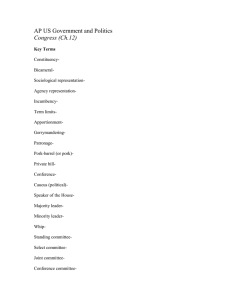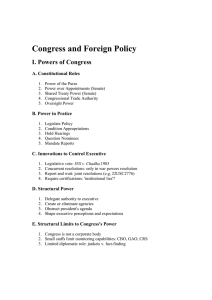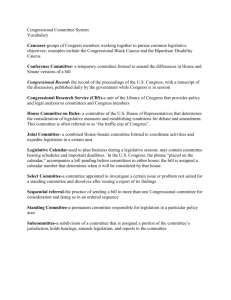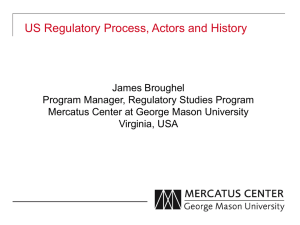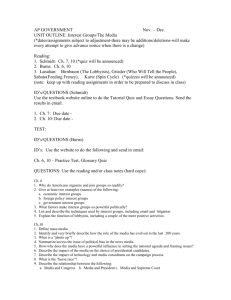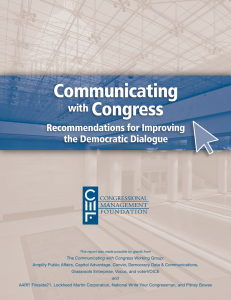Notes on Interest Groups
advertisement
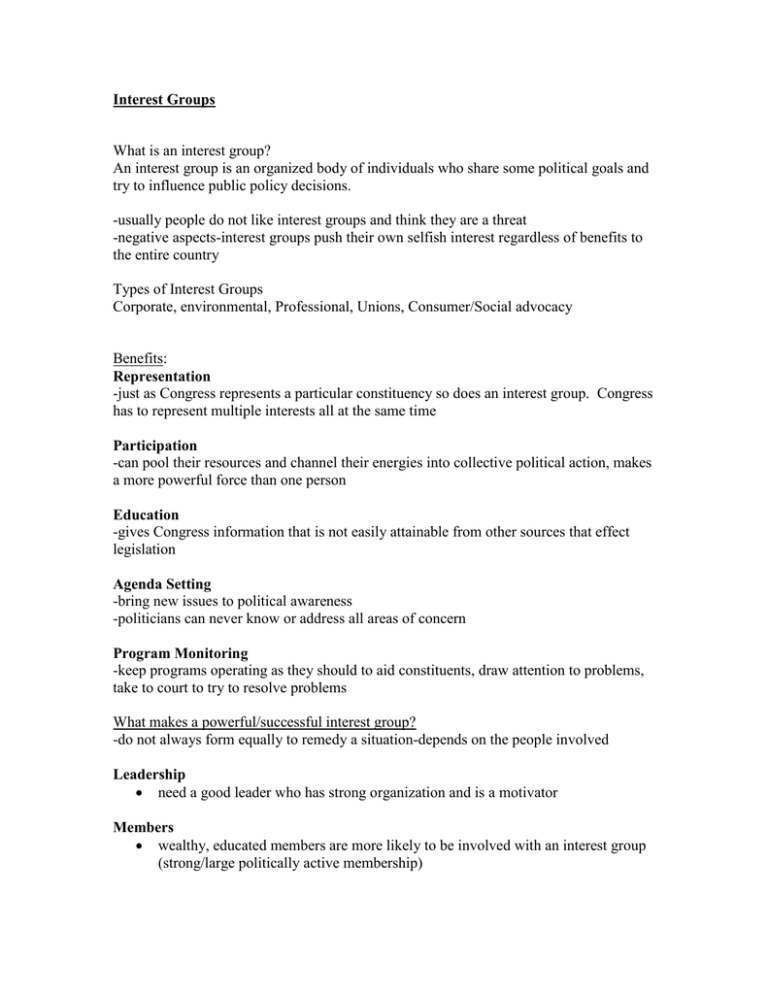
Interest Groups What is an interest group? An interest group is an organized body of individuals who share some political goals and try to influence public policy decisions. -usually people do not like interest groups and think they are a threat -negative aspects-interest groups push their own selfish interest regardless of benefits to the entire country Types of Interest Groups Corporate, environmental, Professional, Unions, Consumer/Social advocacy Benefits: Representation -just as Congress represents a particular constituency so does an interest group. Congress has to represent multiple interests all at the same time Participation -can pool their resources and channel their energies into collective political action, makes a more powerful force than one person Education -gives Congress information that is not easily attainable from other sources that effect legislation Agenda Setting -bring new issues to political awareness -politicians can never know or address all areas of concern Program Monitoring -keep programs operating as they should to aid constituents, draw attention to problems, take to court to try to resolve problems What makes a powerful/successful interest group? -do not always form equally to remedy a situation-depends on the people involved Leadership need a good leader who has strong organization and is a motivator Members wealthy, educated members are more likely to be involved with an interest group (strong/large politically active membership) well funded membership helps keep interest groups strong-more money they have, more new members attracted to group which makes a stronger group interest groups need new members all the time to help support them financially and to give them greater political clout Good Issue an issue that is understandable to the public a good issue makes it easier to attract members must keep members happy to keep them in the group, have to be doing a good job or people will drop out Money money allows groups to buy any resources they do not inherently have Free rider problem let someone else pay for service but continue to receive the benefit because they are not required to pay for it and there is no way of restricting the benefit (i.e.PBS-many people watch it but not everyone sends in a pledge to support it) groups that have a significant free rider problem-environmental groups, consumer advocacy groups free rider issues increase the difficulty of attracting new members Lobbyists -part of the money raised by interest groups is used to pay lobbyists-people who represent the interest group in front of the government -lobbyists can be hired to work occasionally or full time by the interest group Lobbyists are often lawyers or government workers. -lawyers have to know how Congress works and how to influence legislators, know how government operates and how to negotiate/bargain -Government workers have the contacts, know how government works, and policymaking -primary goal to convince legislators how to decide on legislation -help them see the issue from a different way and interpret the legislation -do make campaign contributions, hold information weekends in tropical places -try not to affiliate with any particular political party-so they are able to work with both sides PAC-Political Action Committee -pool money and give contributions to many Congressional candidates -limited to $5,000 per election per candidate -can be part of an interest group or unconnected group Types of Lobbying: Direct Lobbying-direct contact with Congressional member or someone from his staff -develop a relationship with a Congressional member-goal is that they come to rely on you, just want accurate information they can count on because always overwhelmed with information Grassroots Lobbying-letter writing campaigns and protests, faxing or emailing your Congressional member -Congressional members pay attention to how many letters/calls they get -provide sample letters and names and addresses of individual representatives, even will write the letter for you if members just call in with their names -sometimes need media attention-picketing/marching -hope is to get the public fired up -with internet and faxes interest groups can mobilize campaigns very quickly Information Campaigns -bringing issues to public attention to get them stirred up -based on ignorance and apathy of the public-if they just knew about the situation they would want to be involved -use ad campaigns, pamphlets, and speakers
